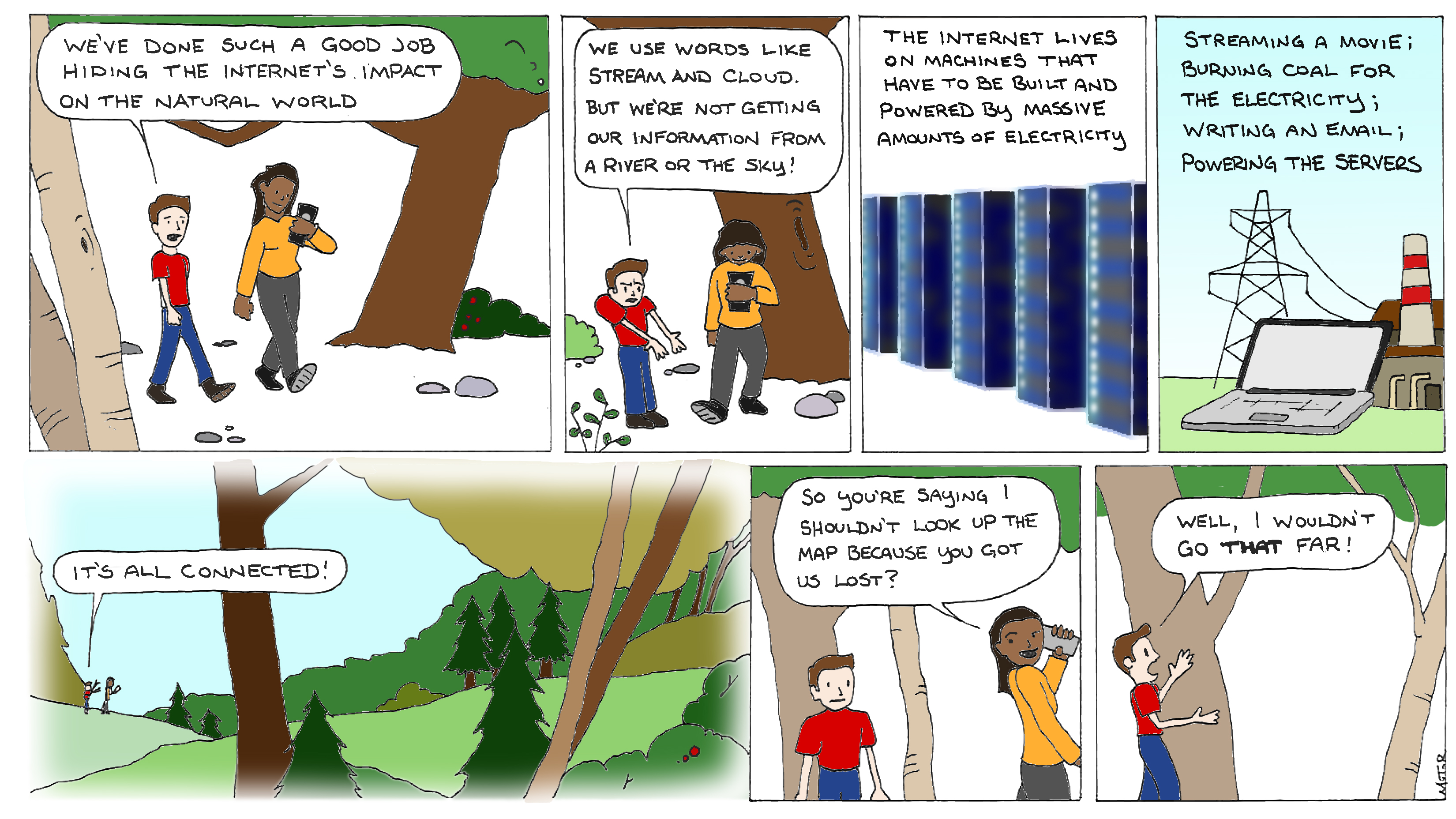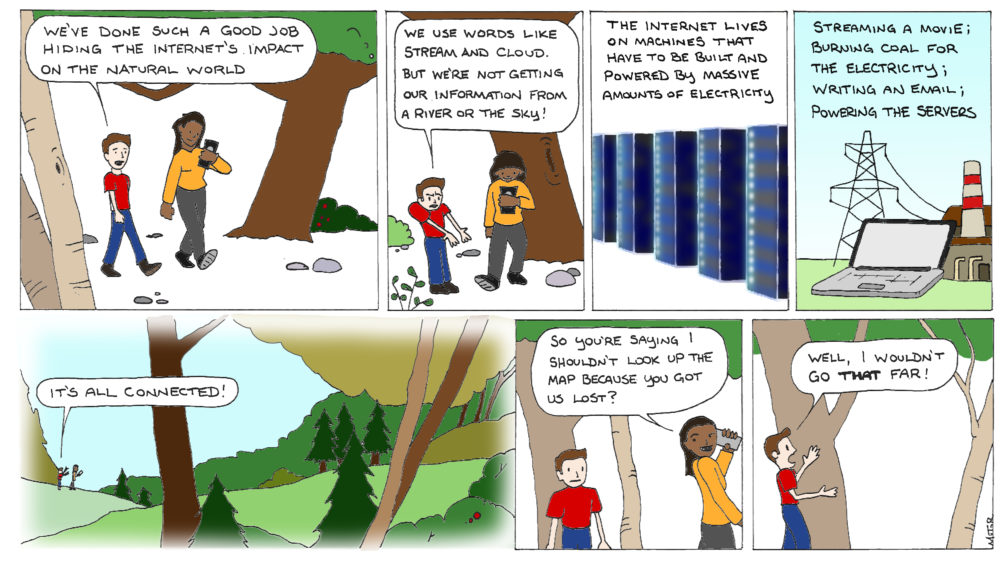Whether it’s from doing things like burning fossil fuels through driving, cranking up the furnace or grilling a steak, we are all responsible for releasing carbon dioxide into the atmosphere, which is called our carbon footprint. When we collectively produce more carbon than the planet can absorb, the extra CO2 contributes to climate change. Even less obvious daily activities add to our carbon footprint, such as using the internet.
While the internet’s data is essentially invisible, it is processed and stored in massive data centers all over the world. Those data centers are powered 24/7, just waiting to send information — videos, podcasts, music, news, memes, messages and everything the internet offers — to our digital devices. All that data that we’ve grown accustomed to having fast at our fingertips along with our always-on mentality ends up contributing to our digital carbon footprints.

Measuring our individual impact isn’t easy, but you can take steps to reduce it. Here are eight things you can do:
1. Adjust power settings
Set your computer to go into sleep or hibernate to conserve energy when you’re taking a break. Shutting down your computer and turning off your monitor and printer altogether when they’re not in use will save even more.
2. Lower your monitor brightness
A tip from Harvard Law School’s energy manager suggests that dimming your monitor from 100% to 70% can save up to 20% of the energy the monitor uses. Plus, lowering brightness reduces eye strain.
| To hear more about the environmental impact of the internet, listen to this episode of the IRL podcast. Host Manoush Zomorodi digs into these issues with her guests, and together they try to measure the digital carbon footprint of the episode. |
3. Turn on strict tracking protection
Data tracking services gobble up mountains of information. On nearly every single website you visit, data about you was transmitted to dozens or even hundreds of companies. Firefox now comes with Enhanced Tracking Protection, which protects you from the pervasive tracking and collection of personal data by ad networks and third party trackers. Setting your preferences to the Strict setting will block most data transfers and processing. That also equates to less energy being used, though some sites may break.
4. Download instead of stream
Streaming music and videos adds to your digital carbon footprint, according to at least one researcher. Opting to download rather than stream means you’ll pull the data from the server only once. Some streaming services do a better job of mitigating their impact than others, according to the Click Clean Report from Greenpeace.
5. Reuse your searches
It turns out that a good deal of search queries — the things you type into a search engine — are navigational, meaning you’re not necessarily looking to find something so much as you are looking to go somewhere that you’ve already been. An example would be that you search for twitter.com to go to your Twitter feed. Using search rather than simply going to the site sends the information from your browser to the search engine servers for data processing before returning a list of search results to your browser.
That processing contributes to your digital carbon footprint, but there is another way: the Firefox Address Bar, AKA the “Awesomebar”. Just start typing in the address bar and the autocomplete drop-down will show matching web pages from your browsing history, open tabs, sync’ed web pages, as well as pages you’ve bookmarked or tagged. Instead of processing a search, you can hop directly to your destination, and that will bring your search carbon footprint to nil.
6. Block video autoplay
Playing videos uses more energy, so why not nip it in the bud by stopping videos you don’t necessarily even want to watch from playing in the first place. The latest Firefox blocks videos with sound from autoplaying by default.
7. Offset your digital carbon footprint
Ecosia is a search engine that funds tree planting from the profit it makes through online searches. In fact, Ecosia estimates that Firefox users have planted 20,000 trees, offsetting up to 960,000 pounds of carbon emissions per year. Way to go, Firefox fans! Learn more about how to calculate and offset your carbon footprint at Carbonfund.org.
8. Get bored
That’s right. Instead of turning to your phone every time you have a minute, daydream, people-watch or listen to life happening around you instead. Not only will you do a good deed for the environment (albeit a tiny one), you’ll do a good deed for your brain. You might find a bit of brilliance in your boredom.
Short of a large number of us unplugging altogether, none of these steps will take a giant bite out of your digital carbon footprint, but they’re a start. Remember when we didn’t recycle, turn the water off when brushing teeth, let it mellow when yellow or compost food waste unless we were farmers? Small actions today can lead to bigger changes in the future.
This article first published on TechRadarPro.
This post is also available in: Deutsch (German) 简体中文 (Chinese (Simplified)) Indonesia (Indonesian) Italiano (Italian) polski (Polish) Português (Portuguese (Brazil)) Русский (Russian) Español (Spanish)



